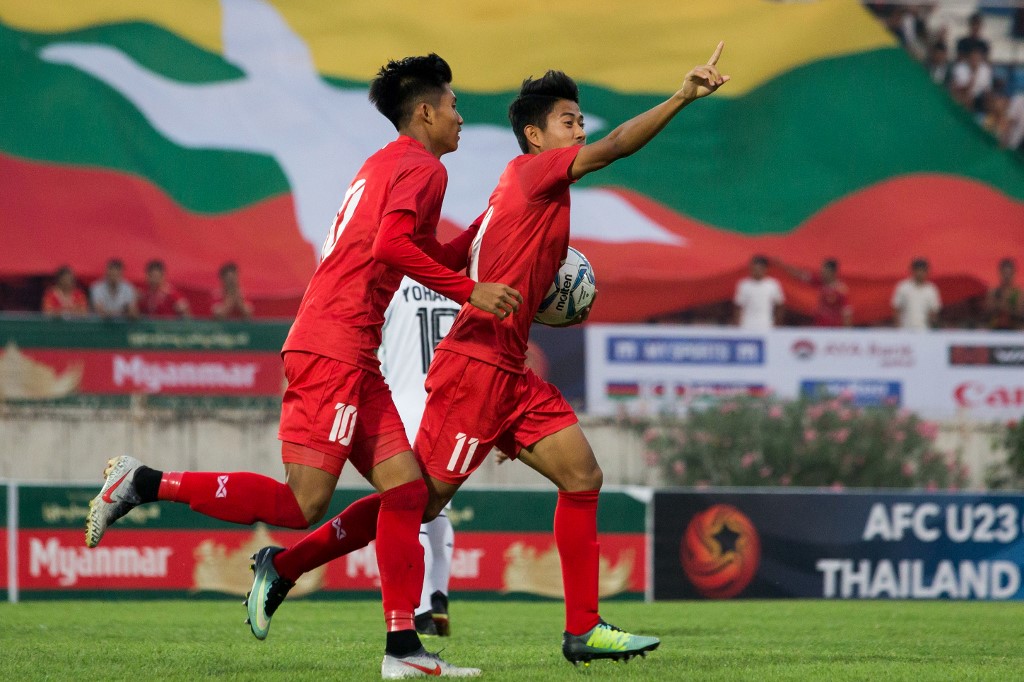
Myanmar’s bid to host the FIFA U-20 World Cup 2021 has been met with a chorus of criticism, as activists and politicians raise human rights concerns in Rakhine state.
FIFA, the world governing body for football, accepted a joint bid for the world championship from the Myanmar Football Federation and Football Association of Thailand.
Five bids—three from Asia—are in the race as they prepare to submit their proposals by August 30, followed by the FIFA Council’s final decision, expected for October 23-24 at its next meeting in Shanghai.
Dr Ronan Lee, a Myanmar researcher and visiting scholar at Queen Mary University of London, deemed the country an “inappropriate host” because of the “ongoing genocide” against Rohingya Muslims.
Myanmar’s army drove 740,000 of the stateless minority into Bangladesh in a brutal campaign in 2017, where they joined some 300,000 more from previous expulsions.
Myanmar officials say they were defending themselves against Rohingya militants. They do not recognise the Rohingya as an ethnic group and refer to them as Bengalis or Muslims from Rakhine state.
Myanmar Football Federation did not respond to our requests for comments. But the case is often made that hosting a World Cup event can boost tourism, create jobs, develop infrastructure and showcase the country’s cities, as well as grow the sport.
“Racism has no place in football, and genocide is the most serious form of racism,” said Lee. “Sport is often used by repressive states to seek international legitimacy and Myanmar’s desire to host the under-20s World Cup is an example of this.
“Football can be a force for social good and Myanmar’s football fans must call on the government and military to reject discrimination and to respect human rights for all regardless of their religion or ethnicity.”
Late last year, Marzuki Darusman, the chair of the UN fact-finding Mission on Myanmar, said there was an “ongoing genocide” in Rakhine.
Mark Farmaner, director of Burma Campaign UK, was surprised by the decision to accept the bid, “even by FIFA’s low standards.”
“You have to wonder if terrible human rights records are a FIFA requirement for hosting world cups,” he said. “If Myanmar and Thailand were to win the bid a big concern of Burma Campaign UK's would be any military companies involved in sponsorship.”
FIFA has come under pressure from rights groups for human rights violations surrounding the preparation of the 2018 World Cup in Russia and 2022 in Qatar.
The body has since made a number of policy changes that state any country wishing to host a World Cup event first provides credible guarantees to meet international human rights law and labour standards.
After the bid was announced, British parliamentarian Dr Rosena Allin-Khan vowed on Twitter to “use every fibre of my being” to ensure Myanmar is not awarded the tournament.
Nope. Absolutely not. This cannot happen. I will use every fibre of my being to lobby the voting members of this process to ensure Myanmar is not awarded the U20 World Cup. It would be a travesty to award them a World Cup while the world turns a blind eye to genocide. https://t.co/yQja0bcold
— Dr Rosena Allin-Khan (@DrRosena) July 5, 2019
Eight nations have made official bids to host the FIFA U-20 World Cup 2021, with Bahrain, Saudi Arabian and United Arab Emirates coming together for the other joint bid. Apart from them, Indonesia, Brazil and Peru have submitted bid documents to FIFA.

